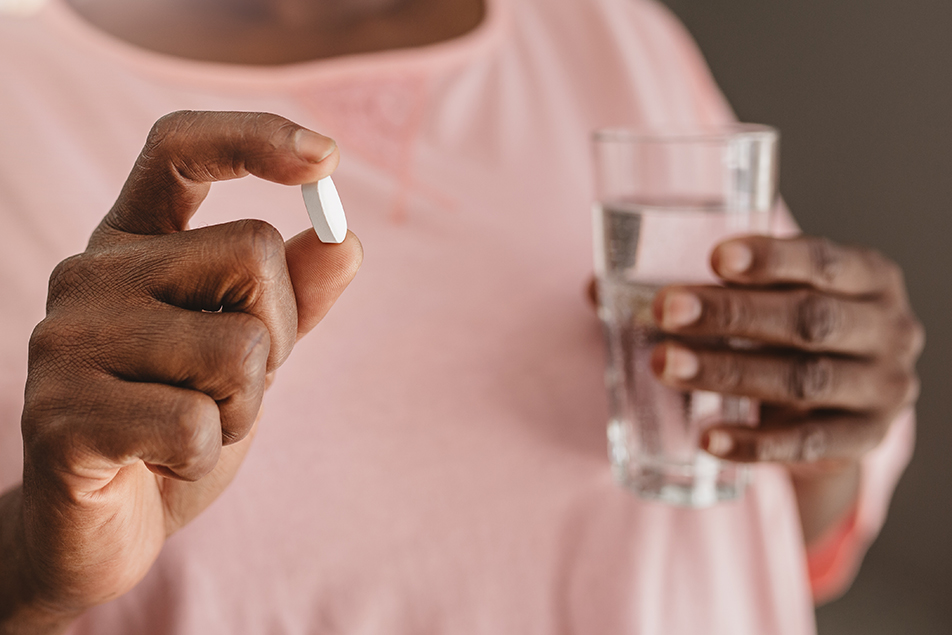
This post was written by Zsanett Kormanyos, PharmD.
During this COVID-19 pandemic, we are all doing our best to adapt and make all the necessary adjustments to protect ourselves and our loved ones. It’s very important to gather information from reliable sources and from people and institutions that we trust. In this post, we’ll look into the evidence behind a selection of dietary supplements that have been historically used for cold and flu-like illnesses and consider the evidence regarding COVID-19 prevention.
Vitamin C
Vitamin C is an antioxidant and an immune modulator that plays a role in maintaining a healthy immune system.
Use in colds: People have been using vitamin C for cold and flu prevention for decades on its own and as a component of popular cold medicines. However, its effectiveness has never been tested by a reliable clinical study.
Use in COVID-19: One study is currently being conducted regarding the use of vitamin C as an add-on drug in COVID patients’ therapy regimens. However, it’s only looking at severely ill patients that are hospitalized, so the study findings will not apply to the general public.
Warnings: Vitamin C can be found in citrus fruits, berries, peppers, cabbages and broccoli, and is a generally safe supplement. Doses up to 1500 mg per day can be used, but our bodies only require about 100 mg daily. Most common side effects include stomach upset, diarrhea and possibly kidney stones if high doses are being consumed for a prolonged period of time. For this reason, patients with renal disease, diabetes, history of kidney stones and elderly patients should use caution.
Recommendation: Vitamin C can be safely used as a supplement in your everyday life, but there is no evidence available to support its use for the prevention or treatment of COVID-19.
Zinc
Zinc is a mineral necessary for every cell function. Low zinc levels have been associated with an impaired immune system, and it also has a hypothesized property to inhibit viruses from multiplying in our bodies.
Use in colds: Zinc has been used to prevent and treat the common cold and flu by reducing the duration of the illness if taken appropriately. To achieve these benefits, zinc must be started within 24 hours of the first symptoms and taken every 2 hours while awake. The recommended dose is 75 mg for the duration of the cold, but therapy should not exceed 7 days.
Use in COVID-19: Studies are evaluating the effects of zinc in COVID patients. However, the doses used in these trials are a lot higher compared to the aforementioned recommendations. Additionally, zinc was an add-on drug in COVID patients’ therapy regimens.
Warnings: The normal daily dose of zinc is 11 mg for men and 8 mg for women if taken as a supplement, but our diet usually covers that. The most common side effects are mouth irritation if lozenges are used, metallic taste, nausea and permanent loss of smell. Excessive zinc supplementation is associated with a copper deficiency that can result in a lack of red blood cells to supply our bodies with oxygen or irreversible effects on the nervous system like tingling skin sensation, impaired coordination or muscle stiffness that can affect movement and speech. Zinc can also reduce the absorption of drugs if the administration is not separated, which can be challenging to people who take multiple prescription drugs.
Recommendation: Based on current evidence, the use of zinc should be avoided to prevent or treat COVID.
Elderberry
Elderberry extract is made from the flower of the black elderberry plant. It contains vitamins, minerals like copper and zinc, and compounds called flavonoids and phenols, among other molecules. Thanks to those special compounds, elderberry has antioxidant, anti-inflammatory, and immune-modulating properties.
Use in colds: Elderberry has been used to treat the common cold for centuries in traditional medicine. According to popular belief, it can shorten the duration of colds and flu-like illnesses. However, a standardized dose has not been established yet, and there is a lack of evidence to support its use.
Use in COVID-19: At the time of writing, no studies have evaluated the use of elderberry to prevent or treat COVID infection.
Warnings: Elderberry is a generally safe herbal product when consumed in moderation. However, uncooked or unprocessed elderberry can cause serious harm due to the potential of cyanide toxicity. The most common side effects are nausea, vomiting, dehydration, decreased blood pressure and decreased potassium levels. Caution should be used for patients with diabetes because elderberry can affect insulin levels in the body.
Recommendation: The evidence behind the use of elderberry lacks in general, so it should not be used to prevent or treat COVID.
The takeaways
The use of dietary supplements and herbal products is generally safe when acquired from a reputable brand and used according to the recommendations on the label. These products do not possess the properties to prevent or treat illnesses. Based on our current knowledge, the safest things we can do are wear a mask when we go out in public, wash our hands regularly, and follow social distancing guidelines as recommended by the Centers for Disease Control and Prevention (CDC). If you are experiencing symptoms of COVID-19, please reference the Symptom Checker and follow up with your healthcare provider.

.jpg)

